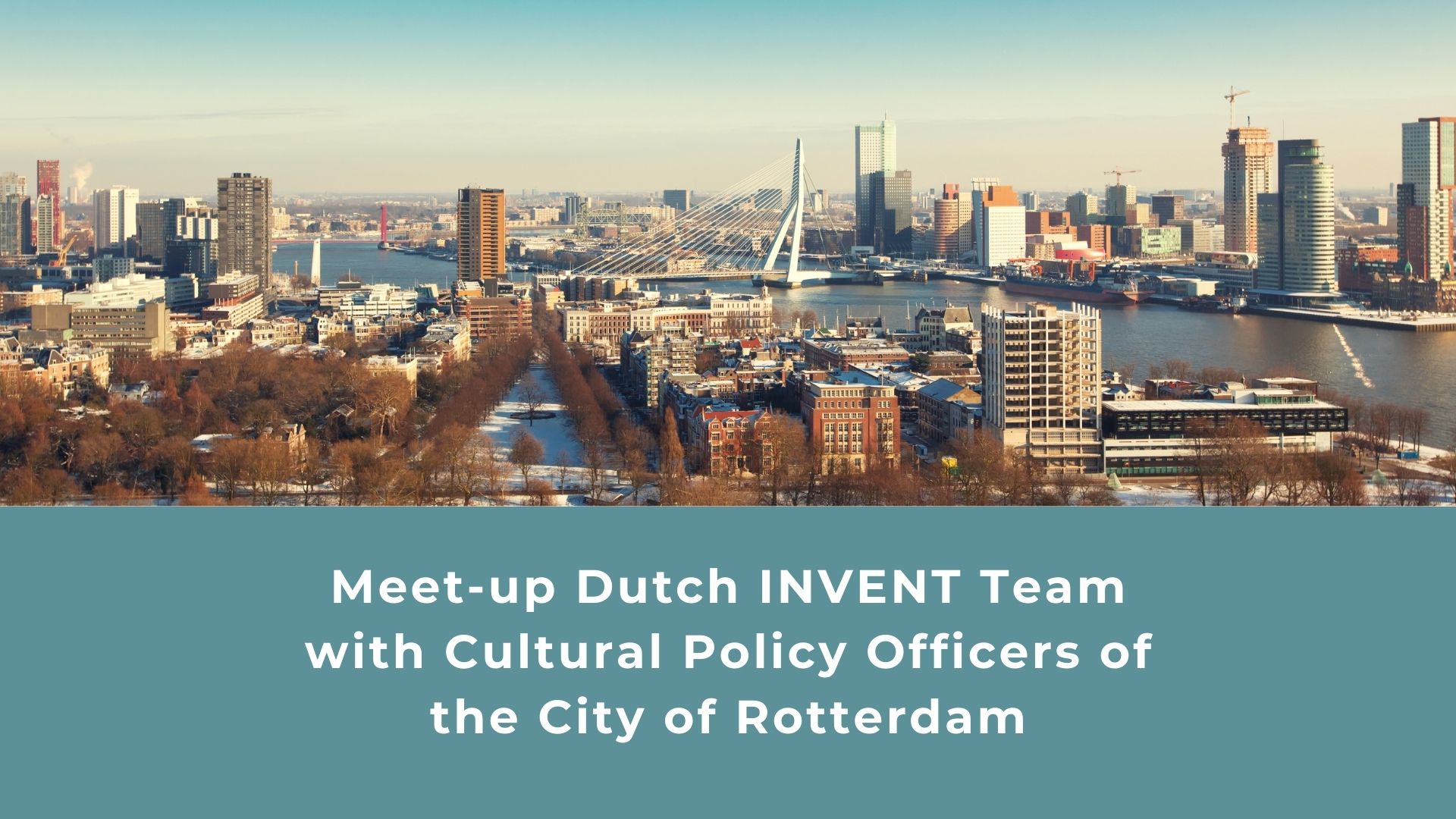Last month the Dutch INVENT team sat down with Olga Smit and Anne-Rienke Hendrikse of the Municipality of Rotterdam. The two senior cultural policy officers paid a visit to Erasmus University Rotterdam to have an open conversation on the developments and current affairs in the local cultural sector.
To reach the central objective of the INVENT project — the creation of an inventory of the societal values and understandings of culture that can inspire more inclusive policies — discussions and collaborations with policy advisors, and other actors in the cultural field are crucial. As the project progresses and moves into additional phases of empirical research, the practical applicability of research findings is ever important.
For this reason, our meet-up with representatives in charge of cultural policy in one of the Netherland’s largest and culturally most diverse cities was very useful. The Dutch INVENT team gathered insight on some of the most pressing matters in the Dutch cultural sector, especially on the municipal level. During the conversation, perspectives were shared on diversity and inclusion in practice, citizens’ cultural initiatives and the relation of cultural participation and wellbeing, also during the Covid-19 Pandemic.
Specifically, the meeting focused on Rotterdam’s current Diversity and Inclusion policy that is part of the Cultuurplan 2021-2024 (Culture Plan) for the city. This plan sets out to foster a more inclusive, innovative, interconnected cultural sector that is accessible and inviting for all audiences in the city, including not just current visitors of Rotterdam cultural organizations but also citizens for whom the cultural offerings in Rotterdam have thus far proven to be less appealing.
For this reason, another facet of their policy, the Rotterdam policy makers were particularly enthusiastic about was their adoption of the Culturele Doelgroepenmodel (Cultural Target Audience Model). Developed from audience research conducted by Rotterdam Festivals, the Doelgroepenmodel has been expanded to identify a total of 11 target audience groups, each of which has been mapped out to include practical information on socio-demographics factors, lifestyles, cultural participation levels, and preferences.
The Municipality makes use of this inclusive tool and encourages organizations active within Rotterdam’s cultural sector to do so as well, ensuring that together they account for the variety in cultural offerings sought after by those 11 target groups that encapsulate the diversity of the city. Hearing INVENT’s directions for follow-up research —an innovative smartphone study and qualitative interviews and focus groups — Smit and Hendrikse were able to share some valuable connections within their networks that could aid the development of the studies to come.
These kinds of conversations taking place across all 9 INVENT partner countries are an essential aspect of realizing the impact the INVENT project sets out to create.
Comments are closed.



 This project has received funding from the European Union’s Horizon 2020 research and innovation programme under grant agreement No
This project has received funding from the European Union’s Horizon 2020 research and innovation programme under grant agreement No